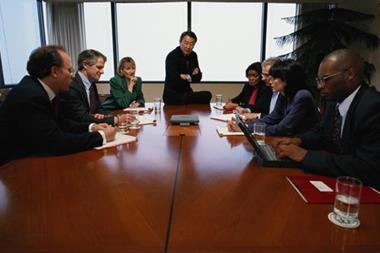At a workshop hosted by PricewaterhouseCoopers, directors Jon Hauck and Tina Trickett set out to explore what corporate responsibility is and what is driving its future, in front of a mildly sceptical audience. Their theme was that the issue was of growing importance to organisations, and that big statements from executives about CR needed to be reflected in an increasingly enlightened risk management approach. Research had shown that 84% of the information used by investors was non-financial in nature and outside the scope of the statutory accounts. Yet companies were spending only 30% of management time on these areas. It was time that companies took the CR agenda and worked out its place in their strategy. The goal behind taking CR seriously was not just enhancing reputation, ensuring compliance and justifying licence to operate, but actually building long-term sustainability. These were the opportunities.
There was little doubt that CR was moving into the mainstream. Many different factors were coming together to drive this: the luxury of a relatively strong economy allowing consumers to look beyond the cheapest price, the speed of the information revolution allowing issues to be communicated globally and instantaneously, and the general awareness of sustainability in the face of such matters as climate change. Different industries were being affected at different rates: it was doubtful that car dealers selling 4x4s, for example, were currently being much affected by the trend. Partly this was down to schizophrenic government attitudes, on the one hand seeing CR as morally desirable, but also being unwilling to alienate the consumer.
Part of the problem lay in the vagueness of the language of CR. The label still has something of 'save the planet' attached to it, whereas it needs to be better understood, unpicked and dealt with. This in turn requires key questions to be answered, such as the extent to which risk processes incorporate robust analysis of CR issues, whether there are KPIs, how they are selected and how they are analysed.
And corporate responsibility should be part of the risk reporting process. If the CR programme is isolated or farmed out to PR; if more is written about it for external stakeholders than within the company, and if there is only meaningless assurance in public reports, these are signs that things are not satisfactory on the governance front.
To questions about the impact of CR on the bottom line, the response was that matters were not yet entirely clear. 'Being responsible is good for the bottom line' was a phrase that was often heard, but whose truth was hard to demonstrate. Companies could certainly make savings, but not necessarily on a scale to have enormous impact. However, the balance was perhaps shifting as business increasingly looked towards protecting what they had won.
















